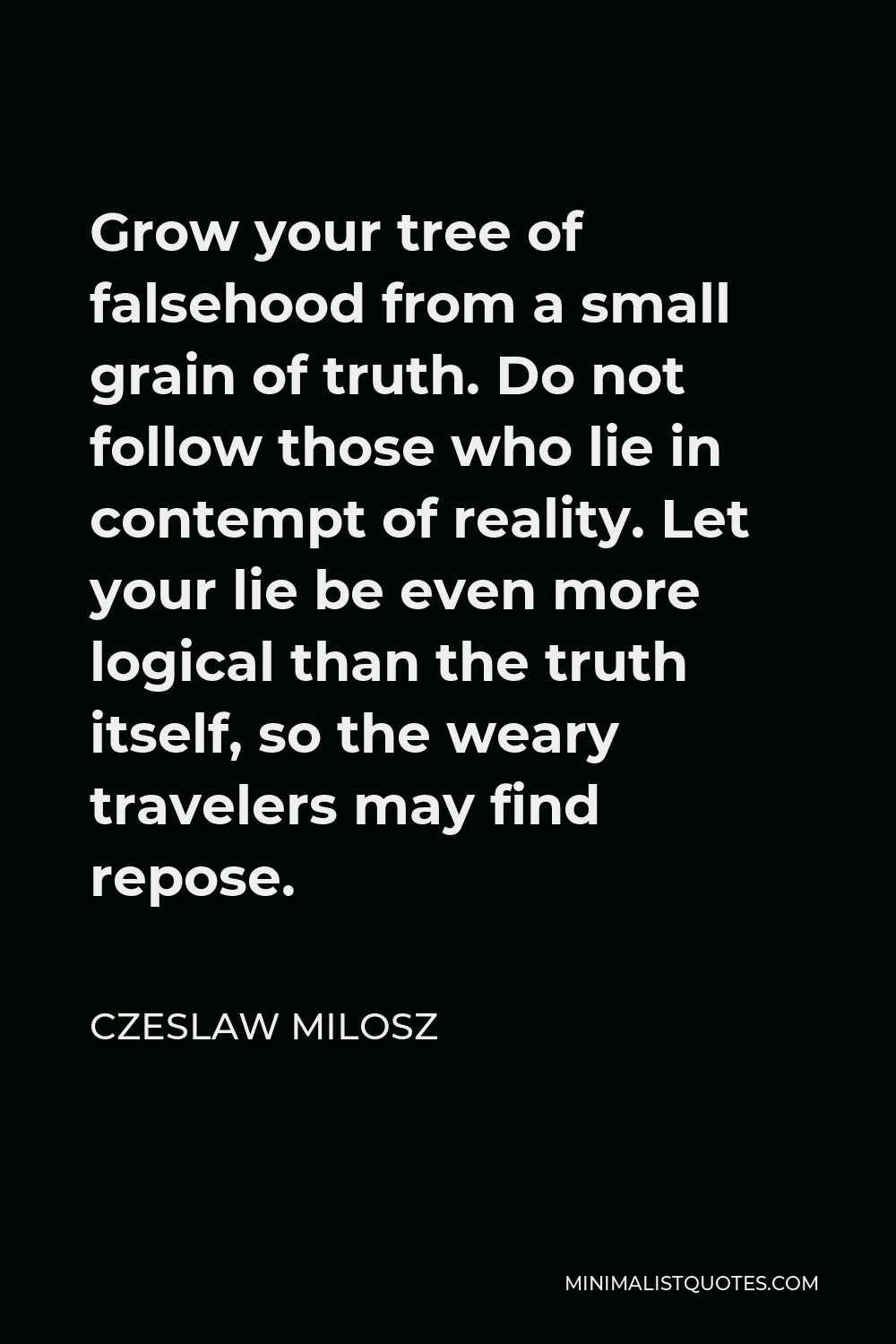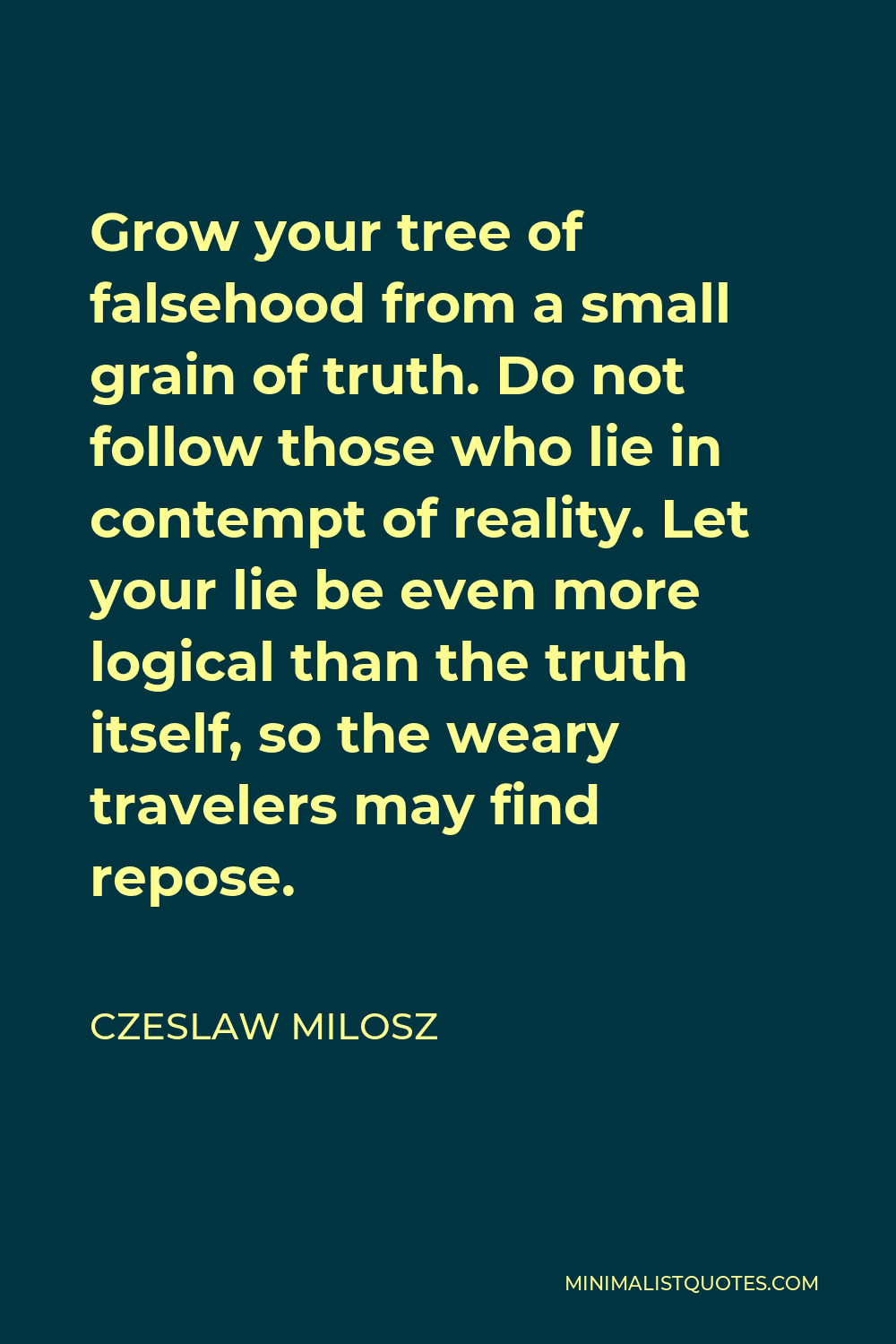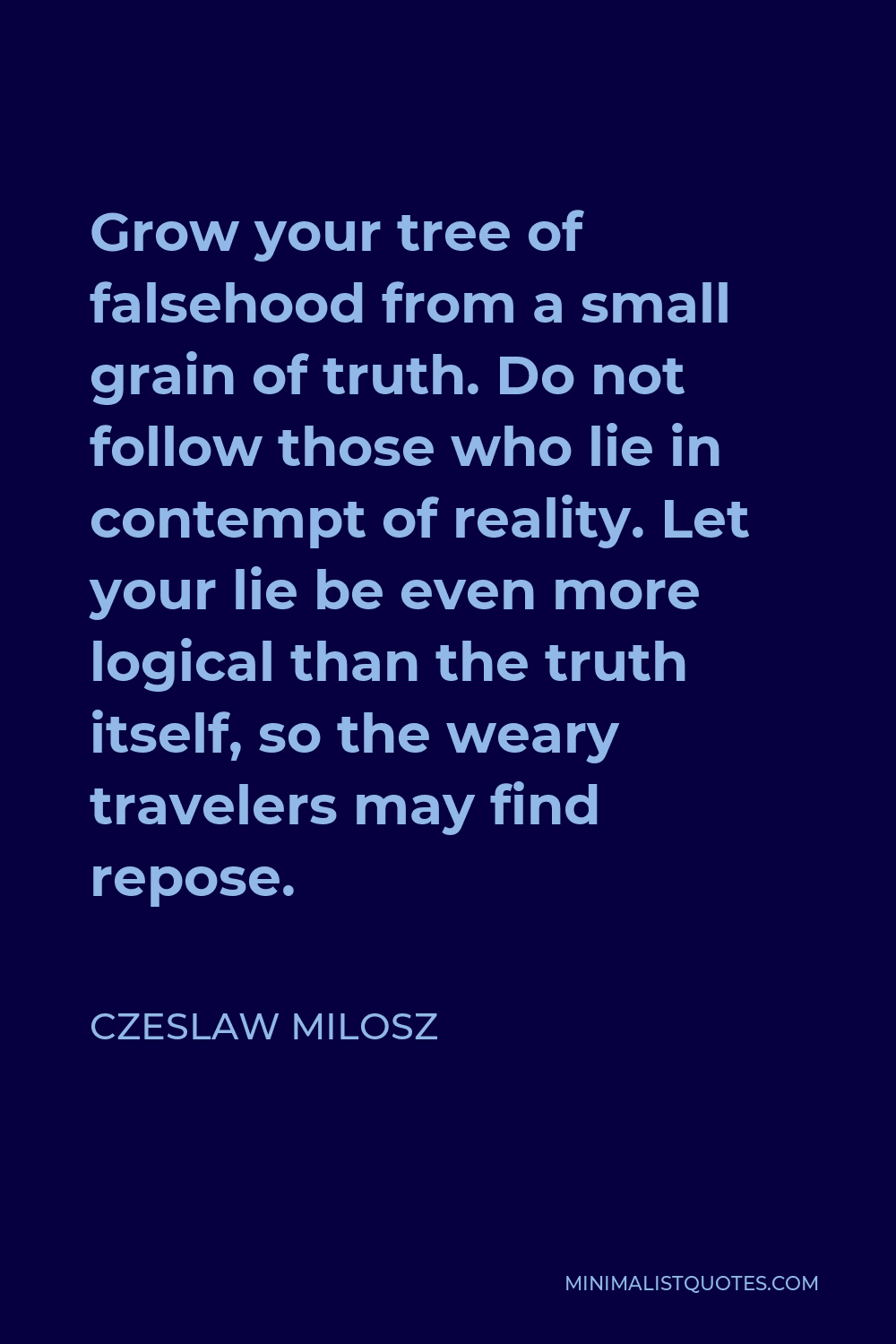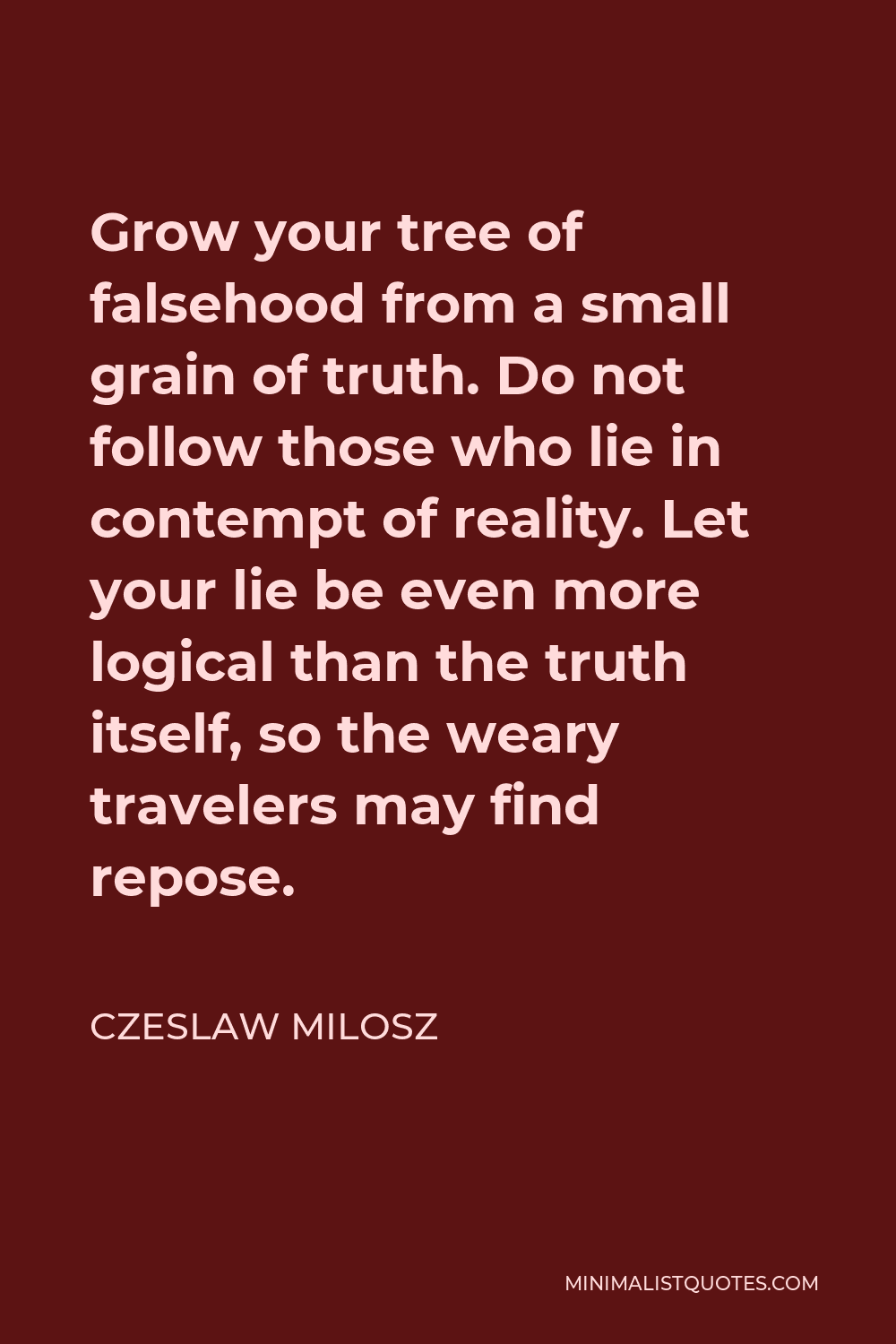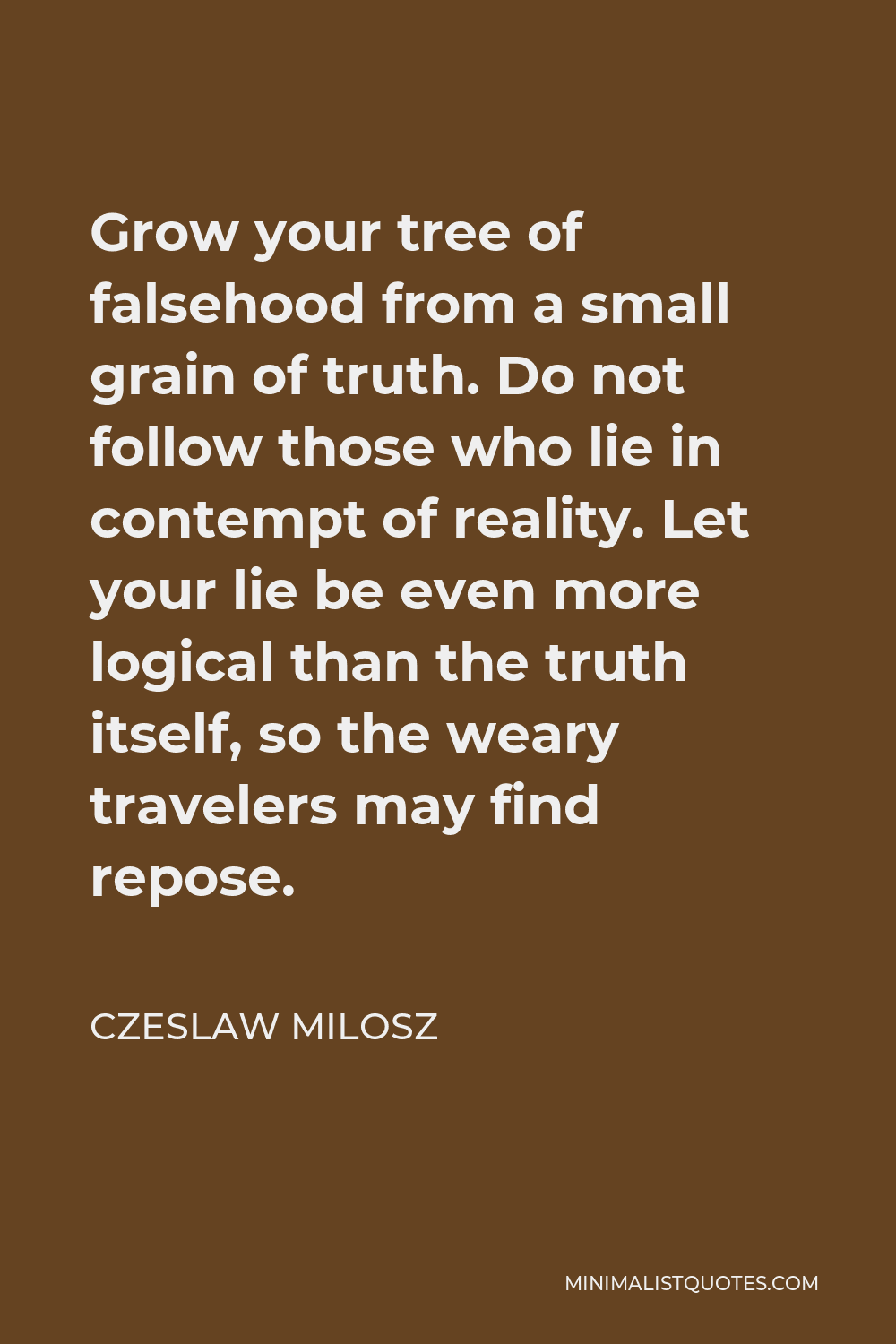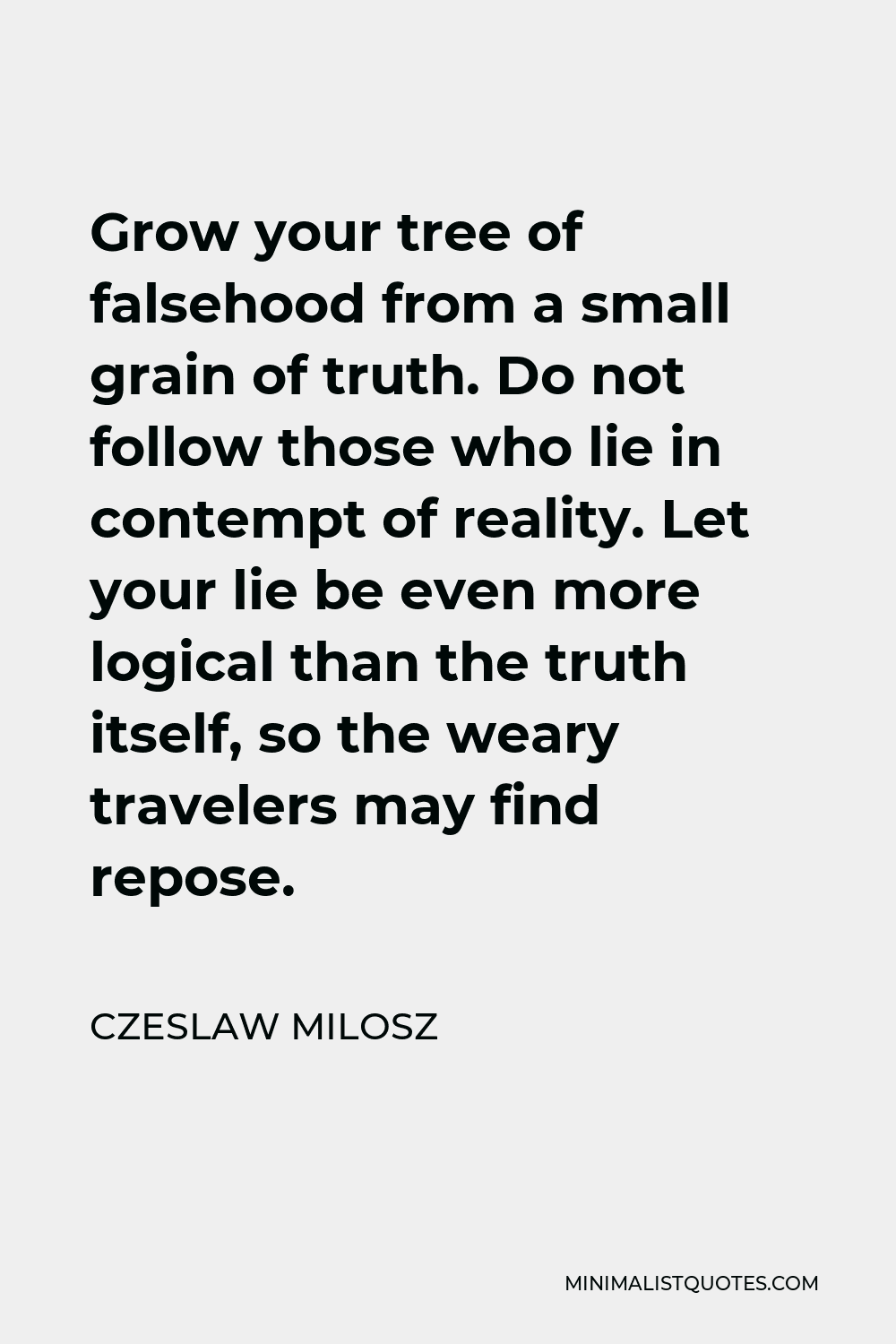Every poet depends upon generations who wrote in his native tongue; he inherits styles and forms elaborated by those who lived before him. At the same time, though, he feels that those old means of expression are not adequate to his own experience.
CZESLAW MILOSZGrow your tree of falsehood from a small grain of truth. Do not follow those who lie in contempt of reality. Let your lie be even more logical than the truth itself, so the weary travelers may find repose.
More Czeslaw Milosz Quotes
-





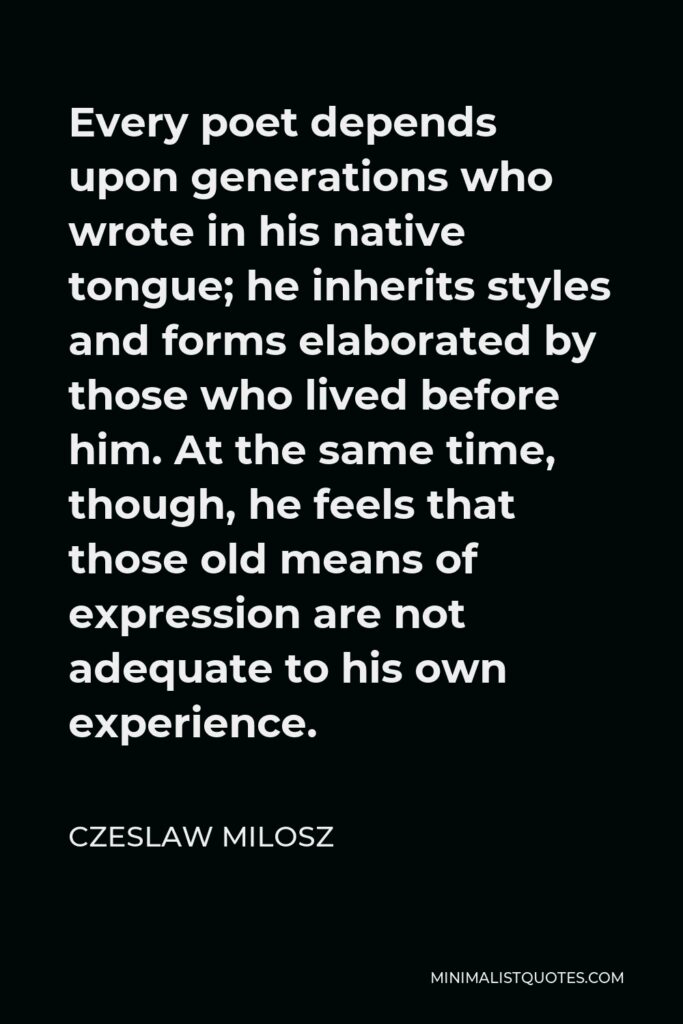

-





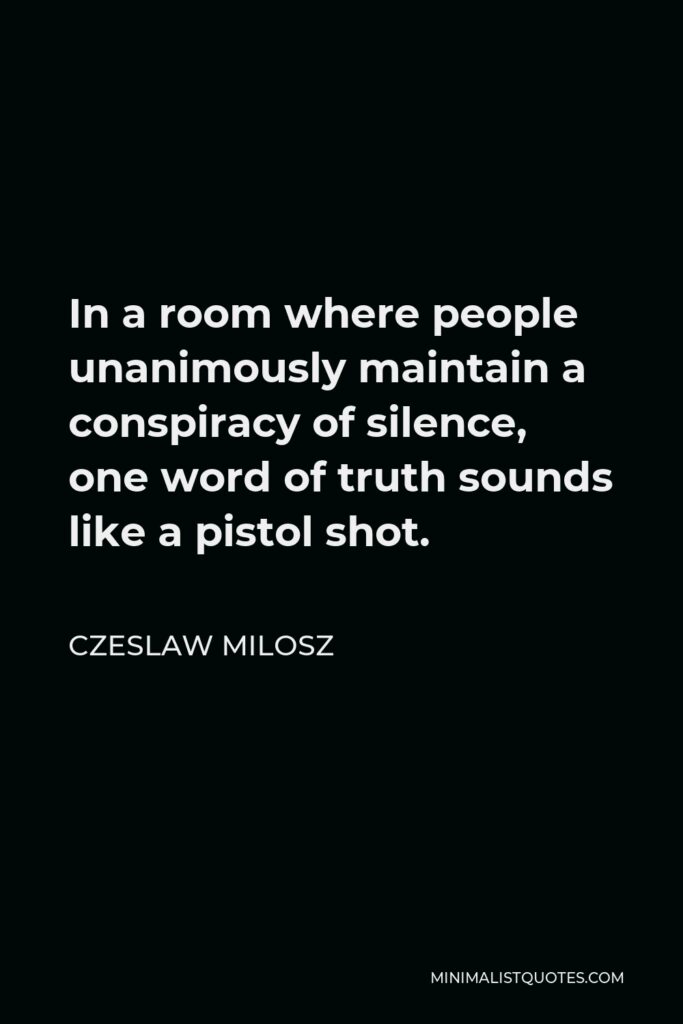

In a room where people unanimously maintain a conspiracy of silence, one word of truth sounds like a pistol shot.
CZESLAW MILOSZ -





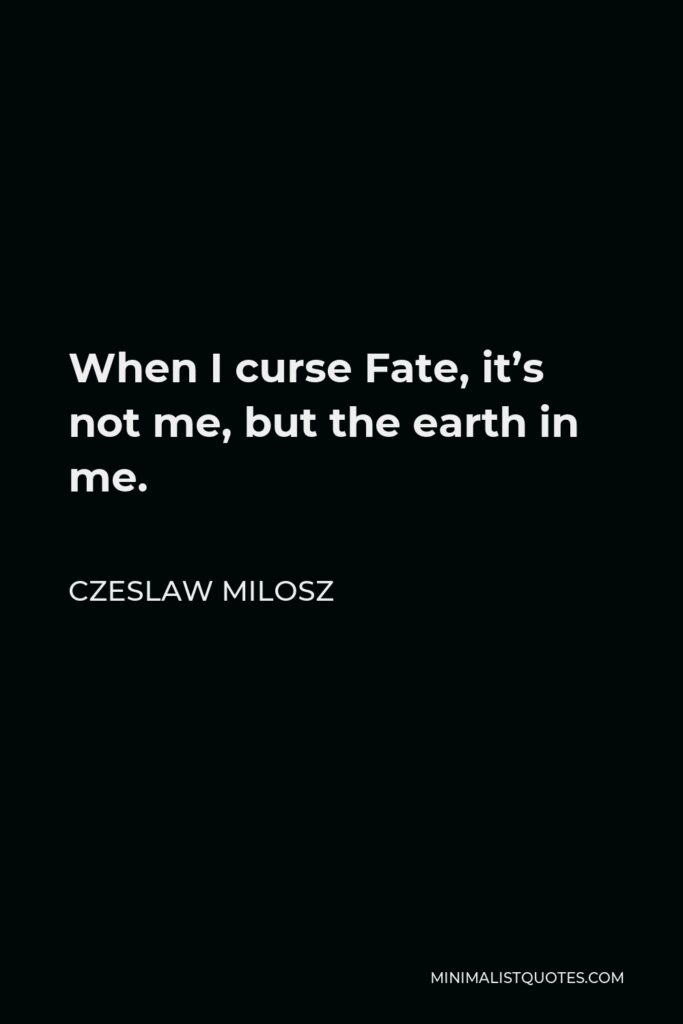

When I curse Fate, it’s not me, but the earth in me.
CZESLAW MILOSZ -





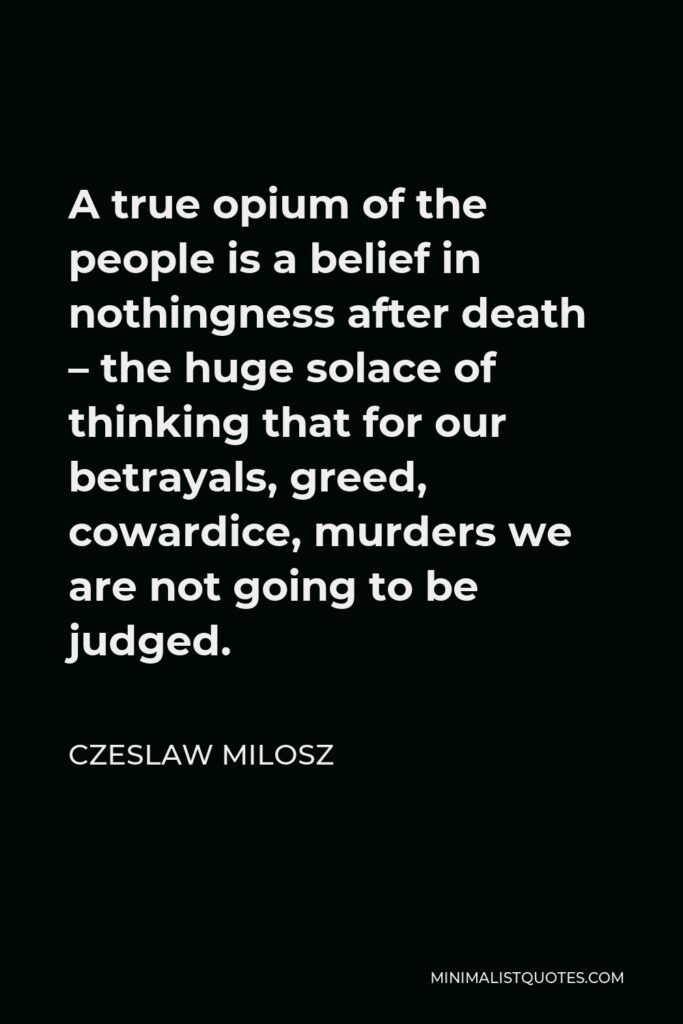

A true opium of the people is a belief in nothingness after death – the huge solace of thinking that for our betrayals, greed, cowardice, murders we are not going to be judged.
CZESLAW MILOSZ -





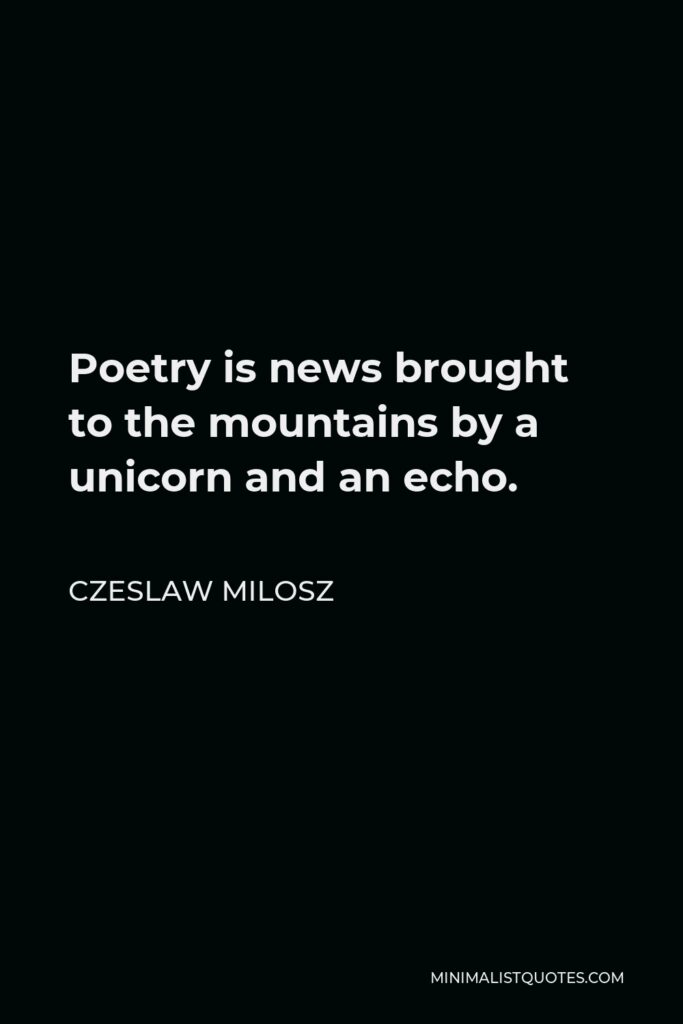

Poetry is news brought to the mountains by a unicorn and an echo.
CZESLAW MILOSZ -





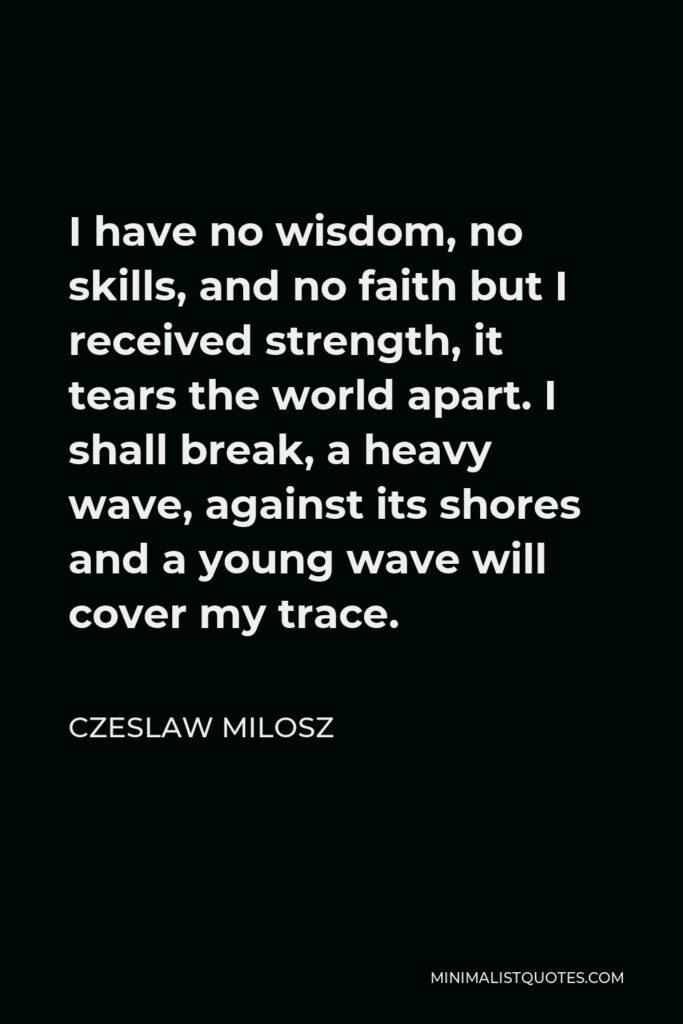

I have no wisdom, no skills, and no faith but I received strength, it tears the world apart. I shall break, a heavy wave, against its shores and a young wave will cover my trace.
CZESLAW MILOSZ -





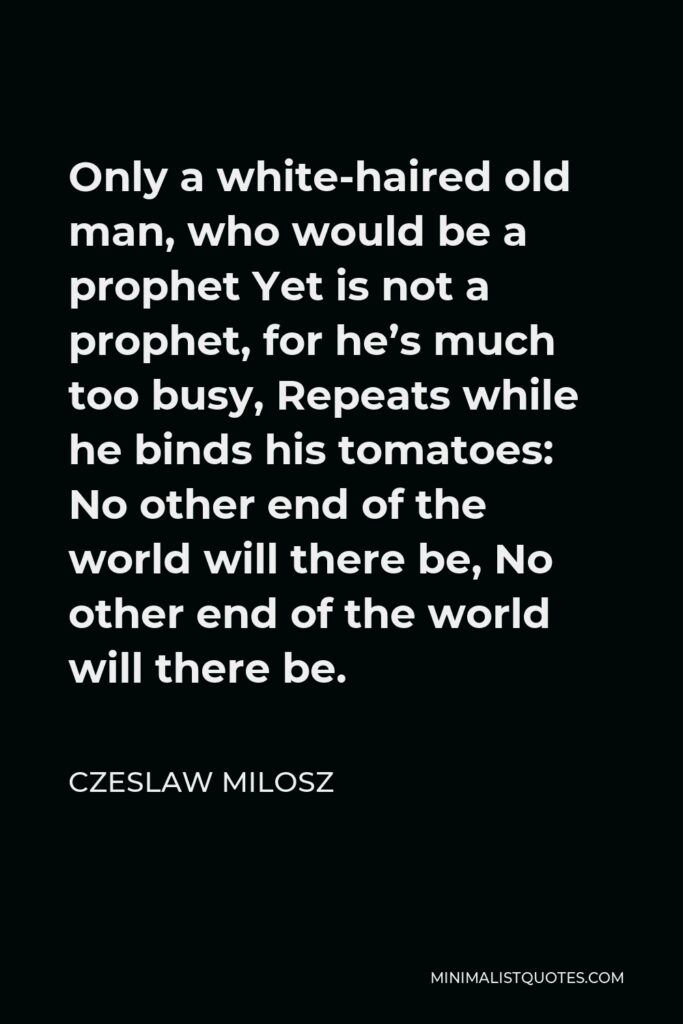

Only a white-haired old man, who would be a prophet Yet is not a prophet, for he’s much too busy, Repeats while he binds his tomatoes: No other end of the world will there be, No other end of the world will there be.
CZESLAW MILOSZ -





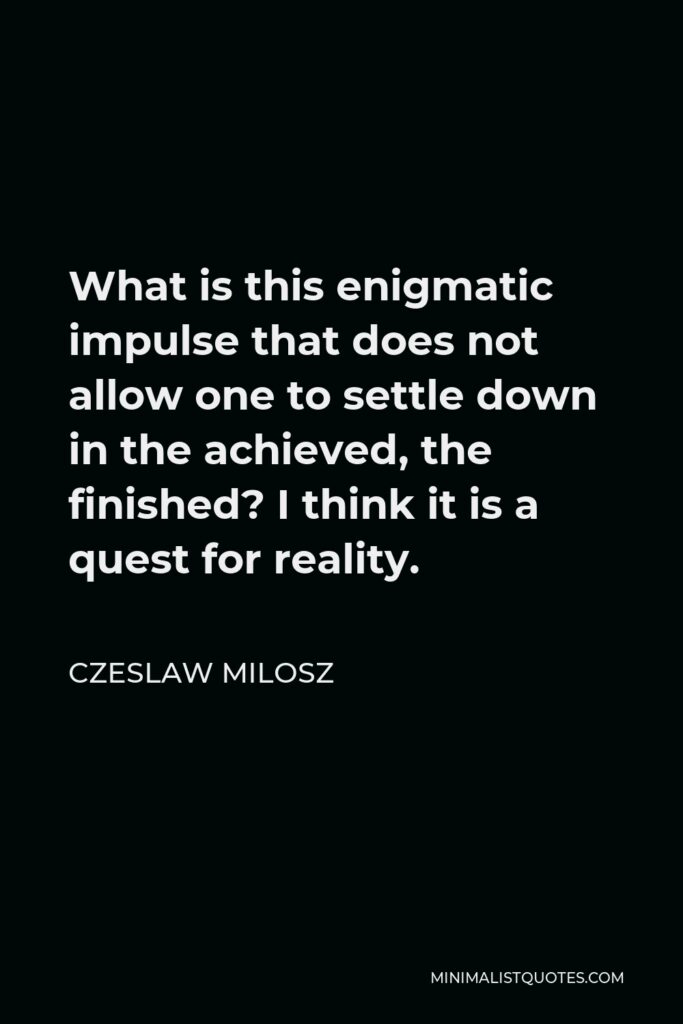

What is this enigmatic impulse that does not allow one to settle down in the achieved, the finished? I think it is a quest for reality.
CZESLAW MILOSZ -





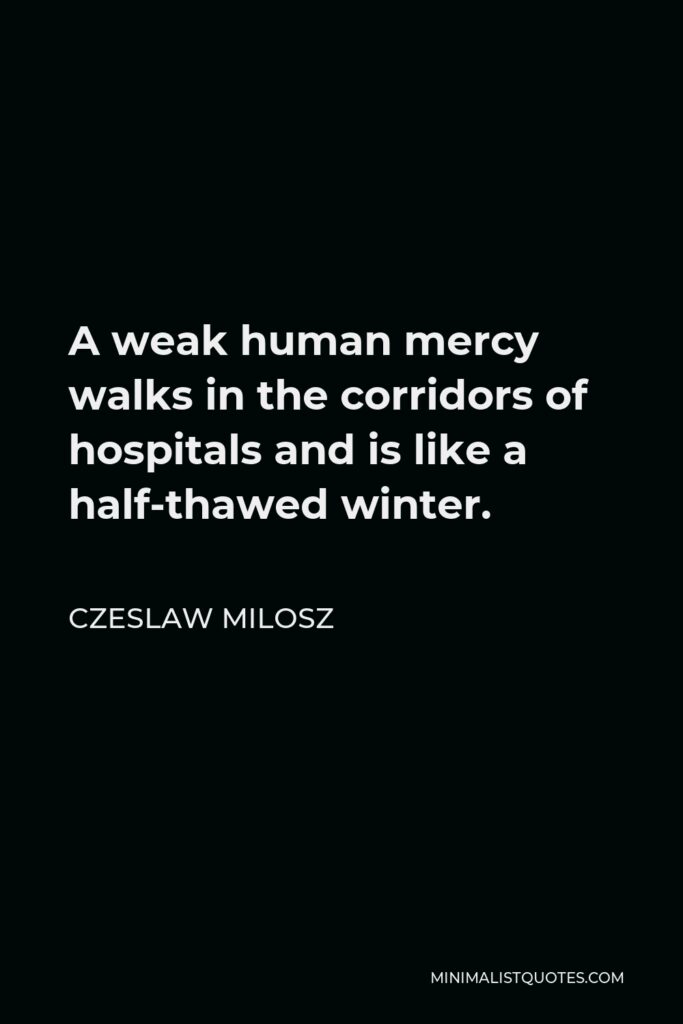

A weak human mercy walks in the corridors of hospitals and is like a half-thawed winter.
CZESLAW MILOSZ -





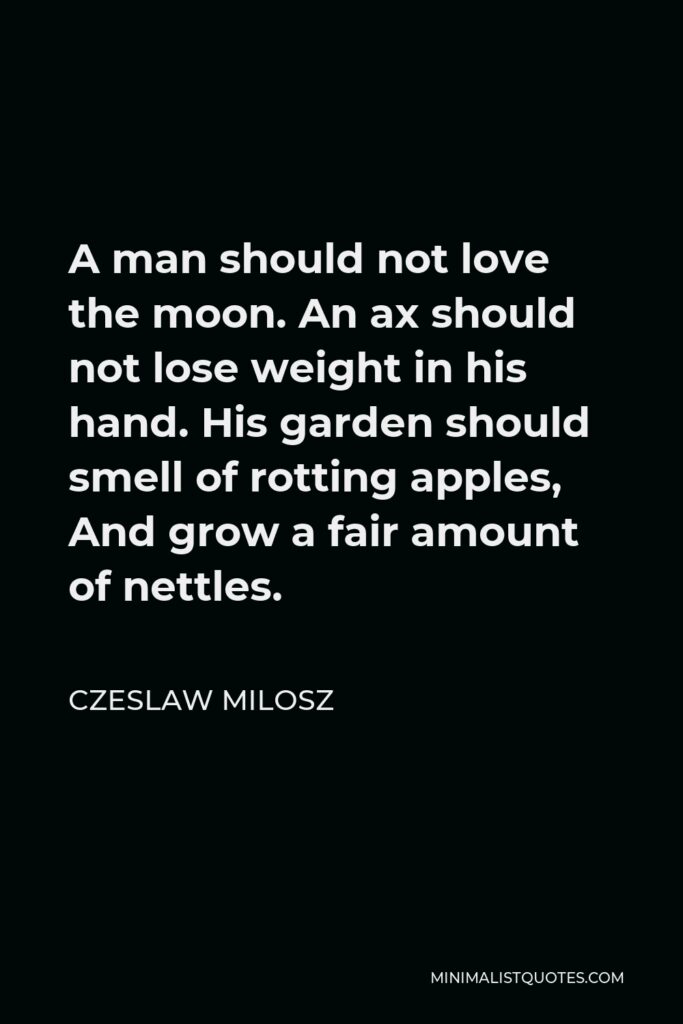

A man should not love the moon. An ax should not lose weight in his hand. His garden should smell of rotting apples, And grow a fair amount of nettles.
CZESLAW MILOSZ -







If I am all mankind, are they themselves without me?
CZESLAW MILOSZ -





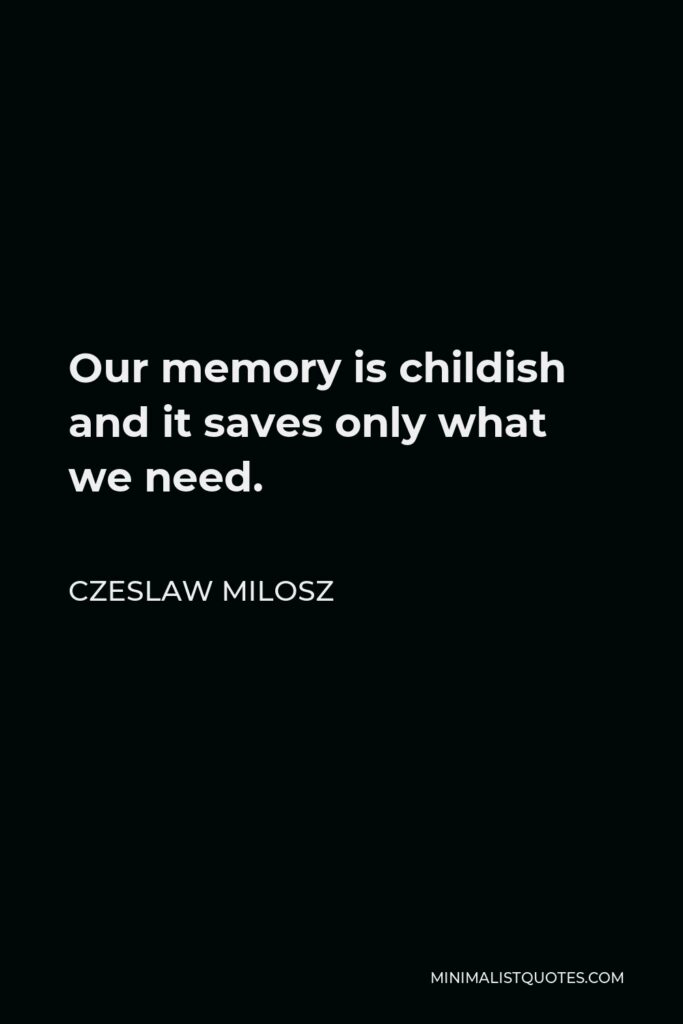

Our memory is childish and it saves only what we need.
CZESLAW MILOSZ -





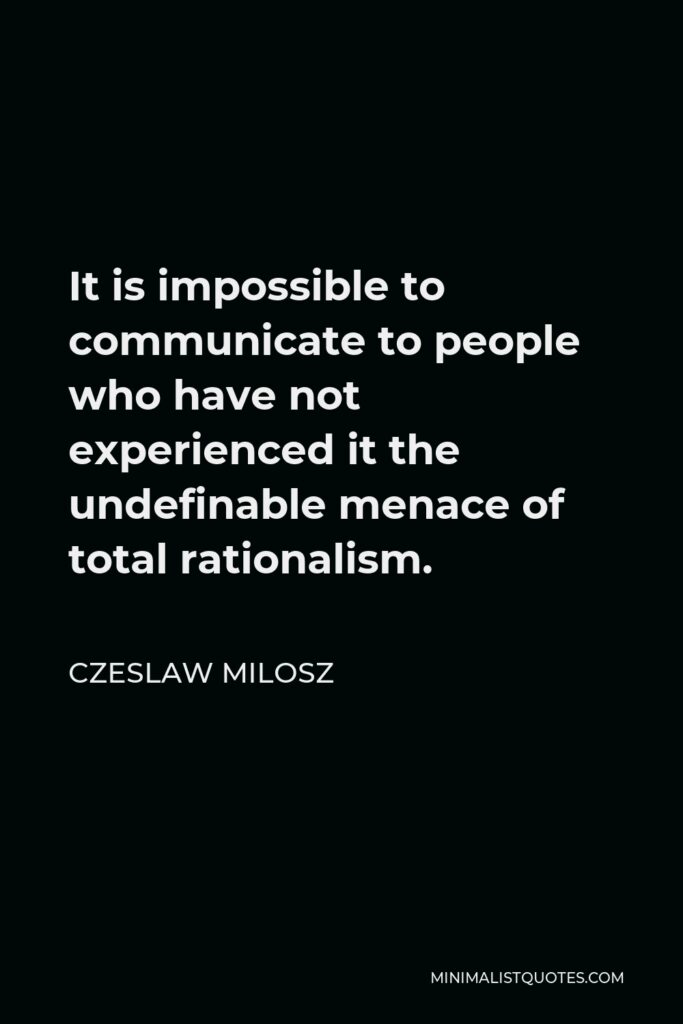

It is impossible to communicate to people who have not experienced it the undefinable menace of total rationalism.
CZESLAW MILOSZ -





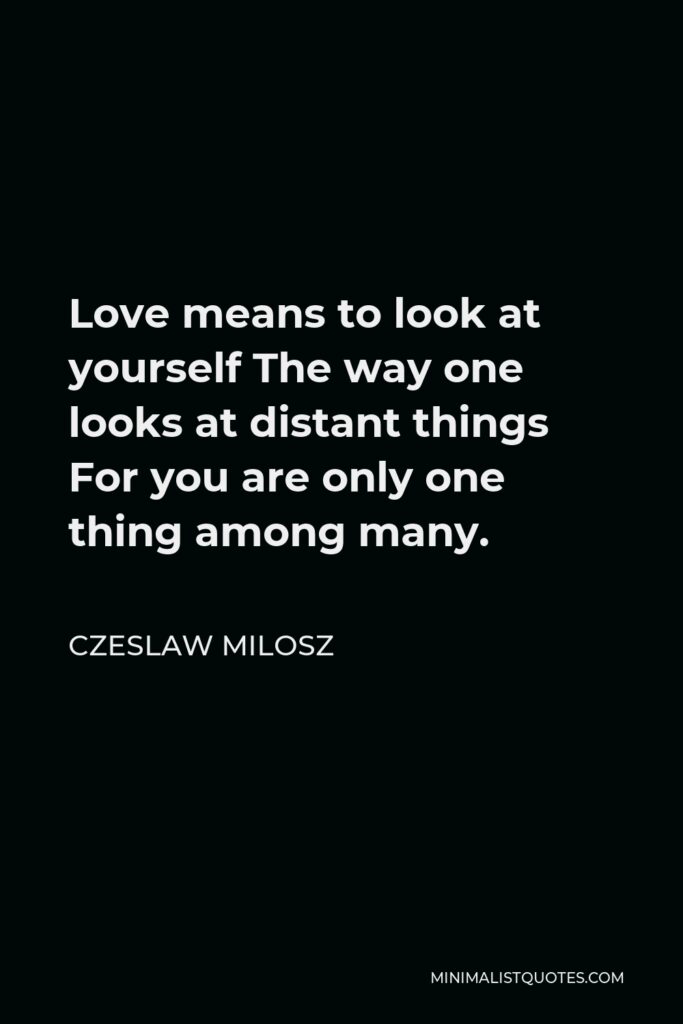

Love means to look at yourself The way one looks at distant things For you are only one thing among many.
CZESLAW MILOSZ -





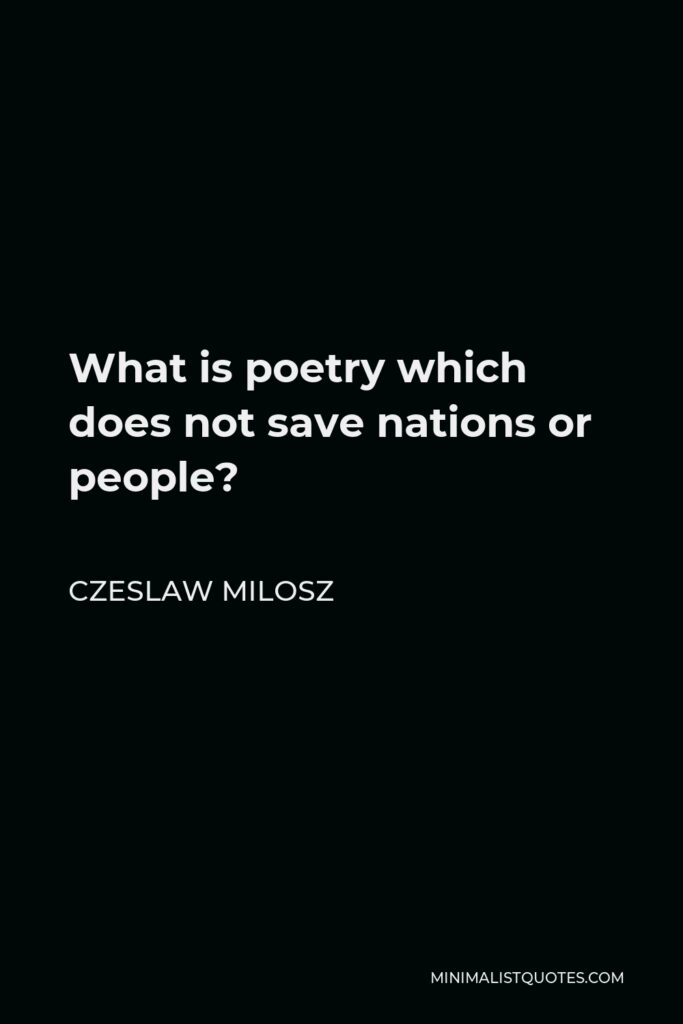

What is poetry which does not save nations or people?
CZESLAW MILOSZ -





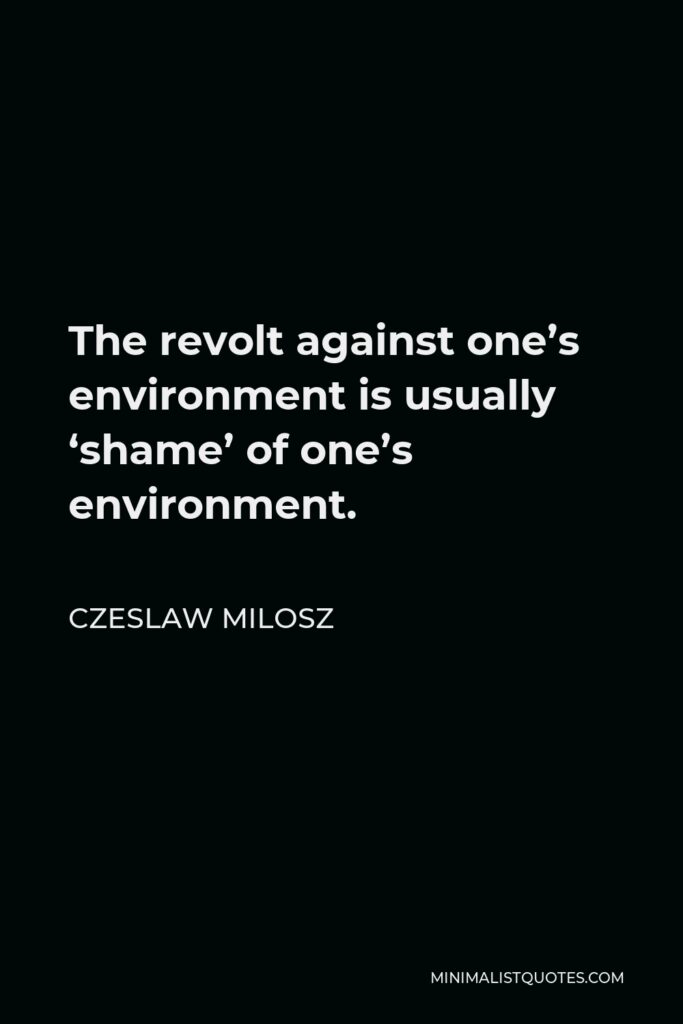

The revolt against one’s environment is usually ‘shame’ of one’s environment.
CZESLAW MILOSZ
